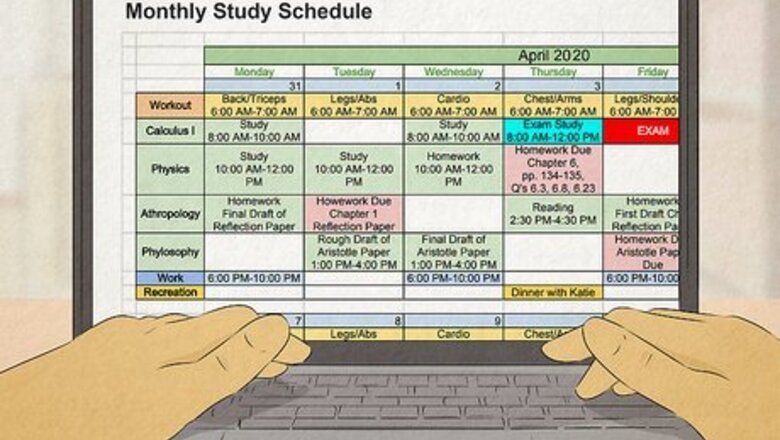
views
- Make a study schedule and stick to it so you retain information in a timely manner.
- Remove distractions (like your phone and TV) from your study space.
- Find a study buddy or group to help you stay accountable and have fun while studying.
Get organized.
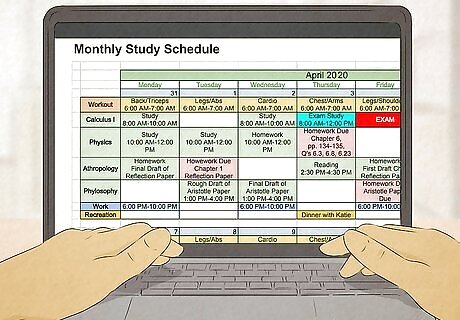
Managing your time can help you study better and wiser. Make a weekly schedule and devote a certain amount of time to study per day. The amount of time you spend is entirely up to you—even 30 minutes a day can make a difference. As private tutor Bryce Warwick says, “What matters more than anything is consistency.” Remember to pace yourself. Don’t cram a full lesson into one study session. Instead, devote a portion of the lesson or key concepts to each session to manage your time more effectively. Keep in mind that school is a full-time job. Prioritize your time by focusing on the most important tasks, then fill in the gaps with extracurricular activities.
Set up a study space.
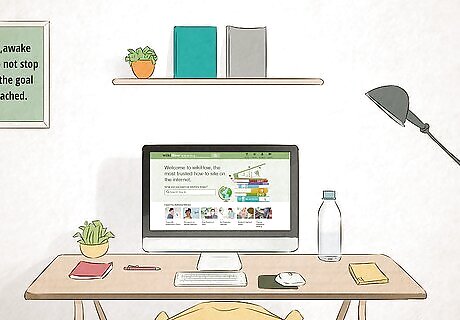
Finding a good study spot can help you feel more productive. Make a study space that allows you to feel comfortable so that studying is more enjoyable. Opt for a quiet area with a sofa, plush desk chair, or beanbag chair where you can lounge while propping up your laptop, or go with a large table or desk where you can lay out and organize all your studying materials. Avoid studying in places and positions that encourage you to fall asleep. For instance, keep the books and homework out of your bed. Similarly, it’s also important to be wearing something comfy. Go with comfortable clothes that won’t distract you, like a cozy sweatshirt and yoga pants.
Minimize distractions.

Silencing your phone and turning off the TV keeps you focused. The constant ping of a phone or background noise from a TV may not seem like a distraction, but they can keep your mind in 2 places at once. If you’re worried about texting a friend or who’s going to solve a mystery, you’re not focused on studying. Avoid this by turning off all electronic devices or putting them in a different room. Consider downloading an app that blocks specific apps or social media sites if you have to study on your phone or laptop. Cold Turkey and StayFocused are excellent options. Similarly, if you’ve got a lot on your mind, take a moment to write yourself a to-do list or notes to get back to later. This can help clear your mind and focus your thoughts on your studies.
Take good notes in class.
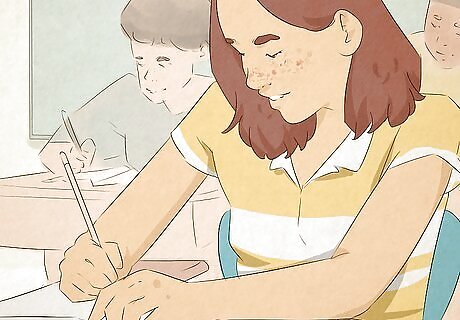
Being smart about your note-taking can help you study better. When in class, make sure you take the best notes you can. Catch all the important information, writing down what the teacher says or emphasizes (even if it’s not in the textbook). Not only do detailed notes help you study later, but they also help you stay alert and focused during the lesson. Follow these note-taking tips to get started: Use abbreviations to jot down words quickly. Ask questions in class or write them down to research later. Rewrite your notes at home, filling in any gaps from further research or memory.
Apply what you’ve learned in real life.

Adding hands-on experience to your studying can help you retain information. For some students, reading the text or jotting down notes isn’t enough—they need to see the material in action. So, strike up a conversation about what you’re studying with a friend or colleague to bring the material to life. Be on the lookout for how the material translates to real life to find real-world examples. For instance, say you’re studying photosynthesis. Try planting something of your own. If you’re studying chemical reactions, do an at-home science experiment.
Use effective study techniques.
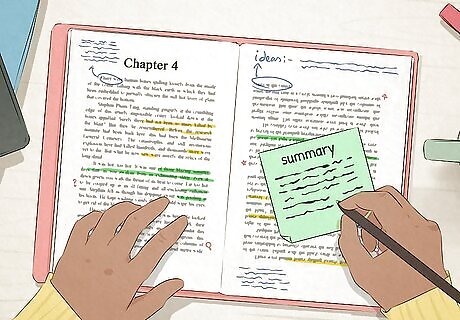
Studying smarter can help you maximize your study time. We get it. Studying can feel like a chore, especially when you don’t know where to start. But if you remember to study smarter rather than harder, you’ll get the most out of your allotted study time and possibly retain more information faster. Try some of these studying techniques to see which works best for you: Make up stories that go along with what you’re studying to remember the information better. Condense all the information you need to study onto one sheet of paper to organize the most important concepts. Highlight important details, such as vocabulary words, dates, or names. Summarize the material in your own words. Make flashcards. Organize the information by making a mind map. Break the material into smaller parts, focusing each study session on a small chunk of information. Stop and memorize each new fact as you come to it. Find a keyword related to what you’re studying, and when you feel distracted, say the keyword repeatedly until you come back to the topic at hand. Follow the SQ3R method: survey, question, read, recite, and review. Skim the material, ask initial questions, read the material, and answer your questions based on what you read. EXPERT TIP Joseph Meyer Joseph Meyer Math Teacher Joseph Meyer is a High School Math Teacher based in Pittsburgh, Pennsylvania. He is an educator at City Charter High School, where he has been teaching for over 7 years. Joseph is also the founder of Sandbox Math, an online learning community dedicated to helping students succeed in Algebra. His site is set apart by its focus on fostering genuine comprehension through step-by-step understanding (instead of just getting the correct final answer), enabling learners to identify and overcome misunderstandings and confidently take on any test they face. He received his MA in Physics from Case Western Reserve University and his BA in Physics from Baldwin Wallace University. Joseph Meyer Joseph Meyer Math Teacher Review basic concepts before diving into advanced topics. Identifying the gaps in your knowledge helps you avoid difficulties later on. Take an assessment or get your teacher's advice on where you can improve. Practice targeted exercises to build a strong foundation so you can confidently tackle new lessons.
Take breaks.
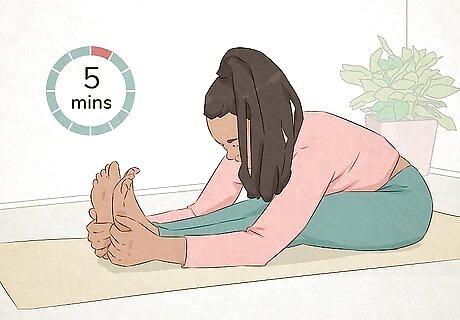
Stepping away from the material can be beneficial. Believe it or not, taking periodic breaks while studying can actually help you retain information better. If you’re studying for a few hours at a time, take 5-minute breaks every half hour or so. Go for a walk, chat with a friend, or quickly scroll through social media. This helps your mind relax, which can help you more effectively remember the material.
Start a study group.

Having a study buddy or two helps you stay accountable. Gather some friends and/or classmates together and have everyone bring their notes and study supplies. Pass your notes around, quiz each other, and chat about the material. You’ll be hanging out with friends all while retaining the material. Turn your group study session into a party by playing a game of Trivia Pursuit or Kahoot! themed to your class. Private tutor Bryce Warwick recommends finding study partners that have similar skill sets as you. This way, you can communicate and help one another efficiently.
Get enough rest.

Sleeping is key to memorizing and processing information. Even if you have a big test coming up, make enough time in your schedule to get enough sleep. Studies have shown that sleep positively impacts test-taking by improving memory and attentiveness. Staying up all night studying may sound like a good idea, but skip the all-night cram session.Getting a good night's sleep will help you perform better. If you are a little sleep-deprived despite your best efforts, take a short nap before studying. Limit your nap to 15 to 30 minutes.
Snack smart.

Eating healthy, nutritious foods can give you the focus you need to study. Instead of sugary snacks, opt for energy-boosting foods that’ll give you the fuel you need to stay productive. Try fruit, vegetables, nuts, and dark chocolate. Have your snacks prepared when you begin a study session so you don’t have to take longer breaks to prepare something. Jennifer Kaifesh, the founder of Great Expectations College Prep, recommends snacking on chocolate-covered almonds if you have a sweet tooth. Similarly, remember to drink plenty of water as well. Staying hydrated is just as important as eating well.
Choose background music carefully.

Listening to certain types of music while studying may help you focus. Some people prefer silence while studying, while others enjoy steady background noise. Music can help motivate you to stay focused, but it’s important to filter what you’re listening to. Stick to instrumental music (songs without lyrics) or soothing nature sounds or landscapes. These can help minimize buzz from the outside world while keeping you focused. Make sure to keep the music at a moderate to low volume, as loud music can be a distraction. With over 15 years of experience in tutoring and academic success, Jennifer Kaifesh recommends listening to Mozart or any other music that helps you feel relaxed.















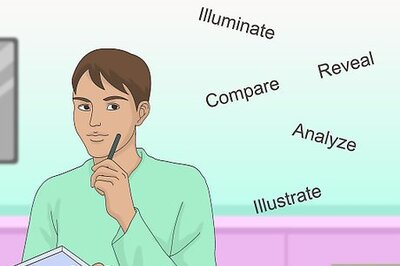




Comments
0 comment